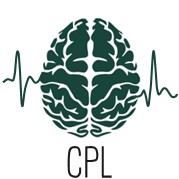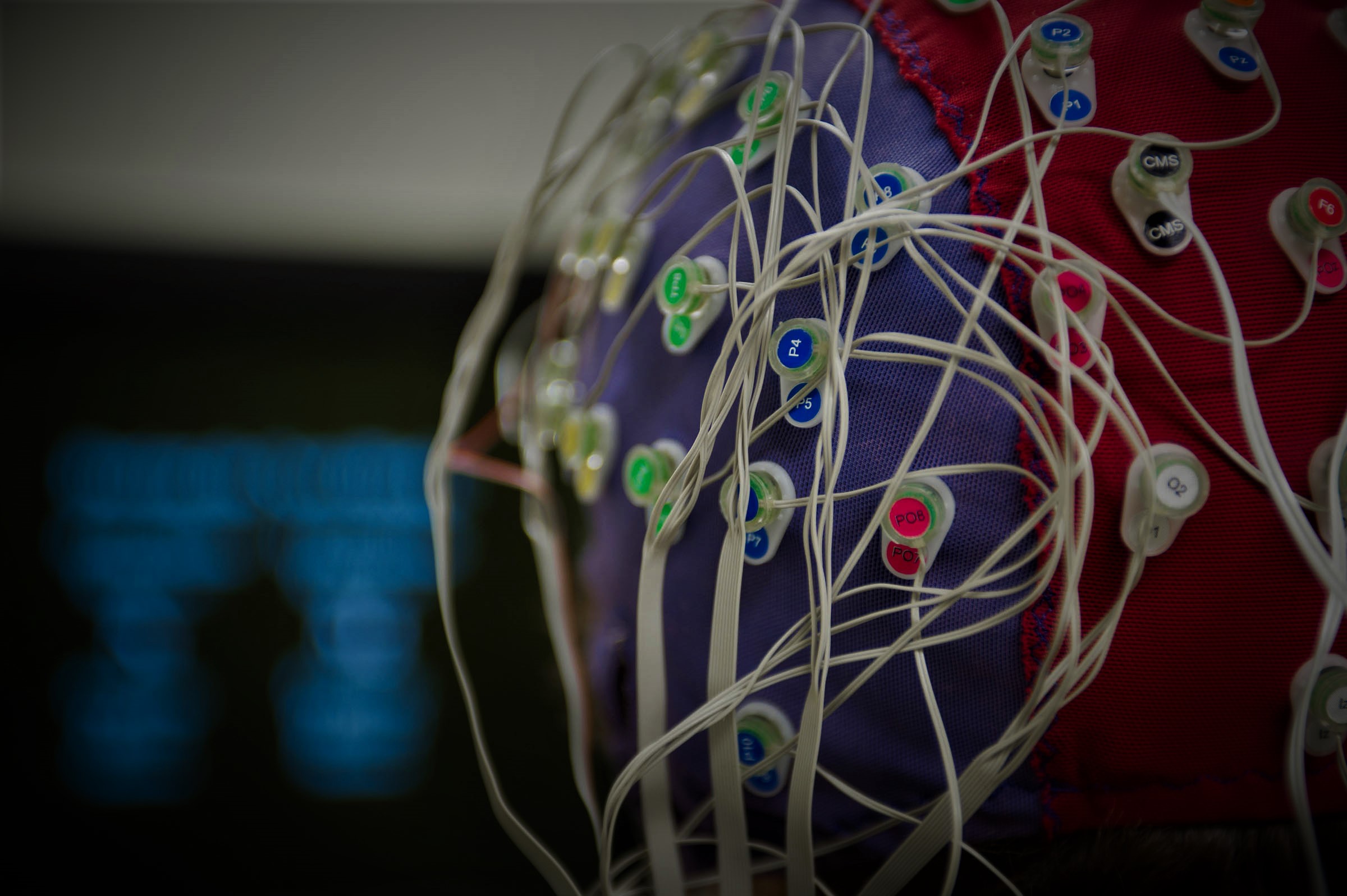Emotion Regulation
Emotions and our ability to manage and regulate them have implications for overall psychological and physical health. Using multi-method approaches (i.e., electroencephalogram, heart rate, EMG), we broadly investigate the efficacy, efficiency, and intrapersonal cost of different types of regulation strategies.
How do we measure emotion and emotion regulation in the lab?
We use both event-related potentials (ERPs) and peripheral psychophysiology indices such as facial muscle movement (EMG) to understand how these processes unfold over time and how they are influenced by personality, psychopathology, and cultural factors. We believe these measures can be used to help refine current models of emotion regulation and psychopathology. Much of this work utilizes the Late Positive Potential (LPP), a sustained ERP that is sensitive to both emotional content and to strategies to increase or decrease emotional responding (e.g., Moser, Hajcak, Bukay, & Simons, 2006). Our research suggests the LPP is both a reliable index of emotion regulation processes (Moran, Jendrusina, & Moser, 2013) and is sensitive to individual differences (Moser, Hartwig et al., 2014).
What emotion regulation strategies do we study?
Third Person Self-Talk
Third Person Self-Talk is an emerging emotion regulation strategy that utilizes linguistic shifts in order to promote psychological distance. Third person self-talk refers to using one’s name – rather than first person pronouns (e.g., I and me) – when reflecting on one’s thoughts and feelings (Kross et al., 2014; Moser et al., 2017). Using one’s own name, instead of first person pronouns, allows the person to reflect on an emotional experience from a distanced, outside perspective.
In collaboration with Dr. Ethan Kross, we have examined the effectiveness of third person self-talk on emotional distress using EEG and fMRI (Moser et al., 2017). Furthermore, we have also tested third-person self-talk in real world settings such as alleviating anxiety and improving rational thinking during the height of the Ebola outbreak (Kross et al., 2017). Recently, our lab has directly compared third person self-talk, to a well established emotion regulation strategy, cognitive reappraisal, using self-report and EEG. Our lab plans on expanding our research of third person self-talk to more real world settings (e.g., medical students).
Non-deceptive placebo interventions
Emotions, stress, and other affective related states are remarkably responsive to deceptive placebos. However, there is a prevalent belief that deceiving participants into thinking they are receiving an active treatment is necessary in order to get placebos to work. Fortunately, new research provides evidence that placebos can still work without deception. In this line of work, we want to understand the effects of non-deceptive placebos on emotional distress measured across different measurement modalities such as self-report, behavioral, physiological, and neurological indices (Guevarra, Moser, Wager, & Kross, 2020). Future research questions regarding this line of work are 1) how do non-deceptive placebos differ in terms of efficacy and efficiency with other regulation strategies, 2) how scalable are non-deceptive placebo interventions, 3) what is the psychological and neurological profile of people who best responds to this type of intervention?
Exercise Interventions
Exercise has long been shown to be a promising method for regulating emotions and improving psychological well-being. The beneficial effects of exercise on mental health has led to the integration of exercise into psychotherapy. Our lab is interested in examining the psychobiological effects of an integrated exercise and emotion regulation (i.e., third person self-talk) intervention on stress, anxiety, affect, and self-efficacy. Currently, we are conducting a proof of principle study examining the efficacy and feasibility of a tele-health administered exercise and emotion regulation intervention.
Reappraisal, mindfulness, and other regulation strategies
Our lab has also conducted research on other strategies such as cognitive reappraisal and mindfulness. For example, we examined how cognitive reappraisal functions for different people such as those who are low or high on trait worry (Moser et al., 2014). We have also tested how brief instructions of mindfulness can influence cognitive and affective outcomes (Lin, Fisher, & Moser, 2019; Lin, Fisher, Roberts, & Moser, 2016).

